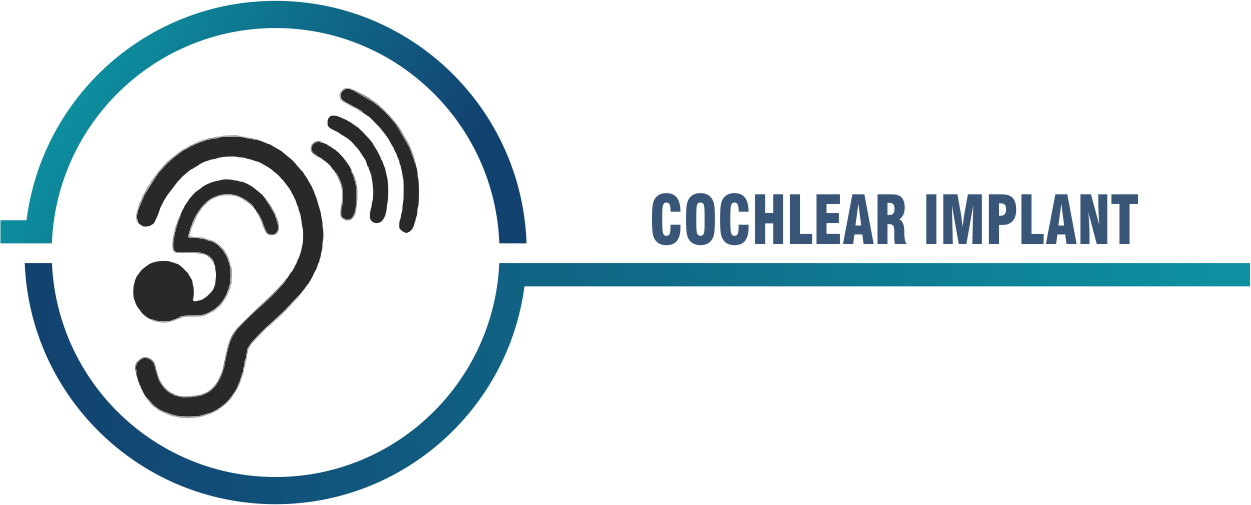
About Cochlear Implant
To offer sound stimulation to someone with severe hearing loss, a cochlear implant is a device that is surgically inserted. Bypassing the normal hearing process, the implant instead stimulates the auditory nerve with electrical signals. Over time, the brain develops the ability to translate these signals into a form of hearing that can be distinguished from other sounds and recognized as speech.
Symptoms
- Both ears have severe to profound hearing loss.
- Hearing loss that is not helped by the use of hearing aids.
- Auditory skills are lacking or developing slowly.
- There are no pre-existing conditions that would prevent the implant from being placed.
- You are in good enough health to have surgery.
- Parents (or, in the case of adults, patients) are committed to follow-up care and appointments, and they have realistic expectations of the outcome.
Risk Factor
- Damage to a nerve during the treatment has the potential to impair taste perception as well as result in facial weakness or paralysis.
- Difficulty with balance and vertigo.
- Hearing ringing, or tinnitus.
- Remaining hearing lost.
- Brain fluid leakage.
- Failure or infection necessitating removal or replacement of the apparatus.
- Meningitis is a brain membrane infection.
Investigations
- Hearing evaluations like an audiogram, a graph that illustrates the way you react to certain noises.
- A hearing aids evaluation.
- CT or MRI scans to look at the internal ear and hearing guts.
| Procedure | India | Turkey | Dubai |
| (Price in USD) | (Price in USD) | (Price in USD) | |
| Cochlear Implantation - Bilateral | 15000 | 26000 | 50000 |
| Cochlear Implantation | 10717 | 25000 | 45000 |
Note : This is an approximate cost and may vary depending on various condition of the patient health after physical evaluation.
Treatment Options
Side Effects
- Bleeding.
- Swelling.
- Infection in the area of the implant.
- Ringing in the ears (tinnitus).
- Dizziness or vertigo.
- Numbness around the ear.
- Changes in taste.
- Dry mouth.
Benefits
Success Rate
Cochlear implants are extremely successful prostheses, with less than 1% rejection.
